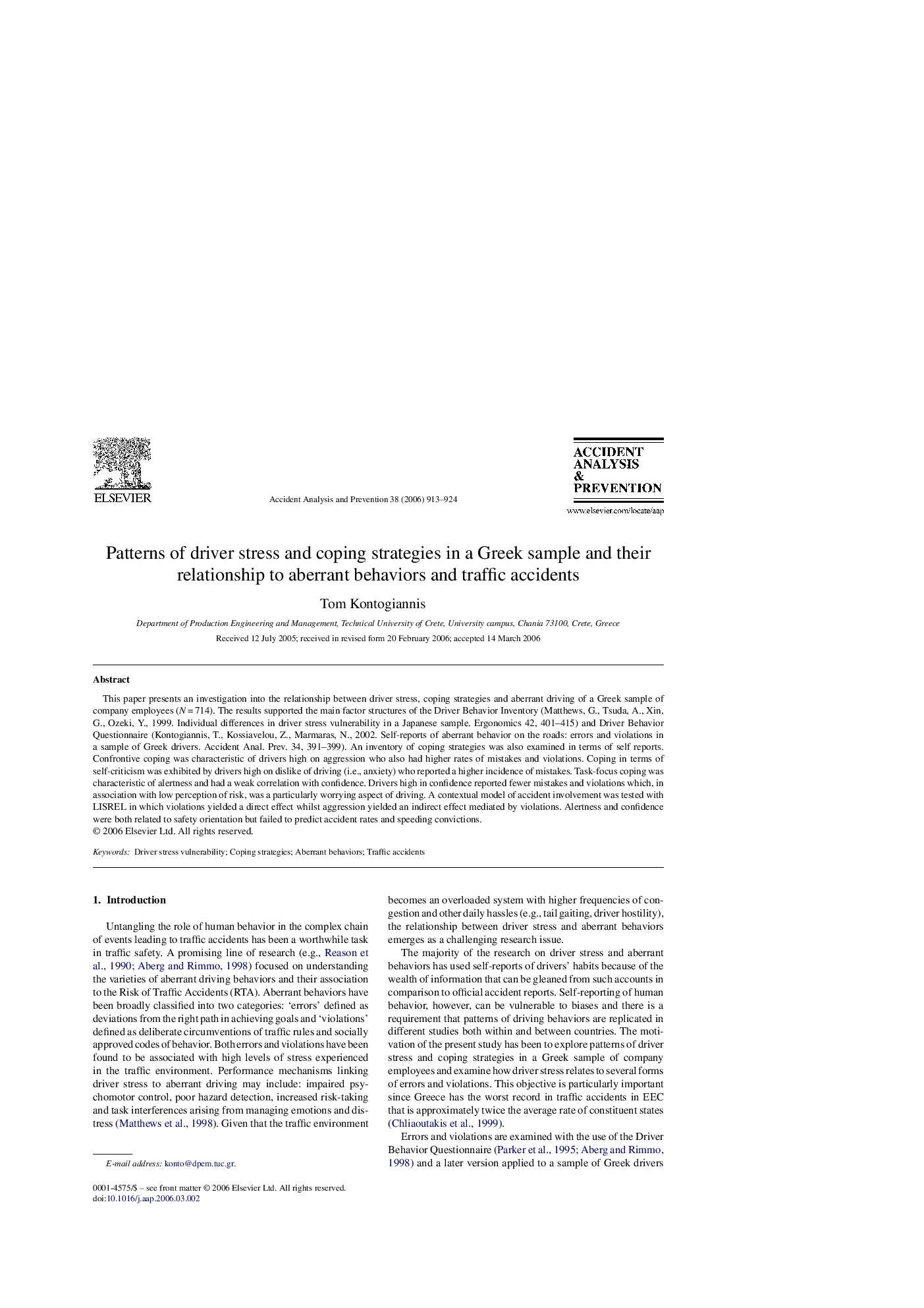| Article ID | Journal | Published Year | Pages | File Type |
|---|---|---|---|---|
| 573698 | Accident Analysis & Prevention | 2006 | 12 Pages |
This paper presents an investigation into the relationship between driver stress, coping strategies and aberrant driving of a Greek sample of company employees (N = 714). The results supported the main factor structures of the Driver Behavior Inventory (Matthews, G., Tsuda, A., Xin, G., Ozeki, Y., 1999. Individual differences in driver stress vulnerability in a Japanese sample. Ergonomics 42, 401–415) and Driver Behavior Questionnaire (Kontogiannis, T., Kossiavelou, Z., Marmaras, N., 2002. Self-reports of aberrant behavior on the roads: errors and violations in a sample of Greek drivers. Accident Anal. Prev. 34, 391–399). An inventory of coping strategies was also examined in terms of self reports. Confrontive coping was characteristic of drivers high on aggression who also had higher rates of mistakes and violations. Coping in terms of self-criticism was exhibited by drivers high on dislike of driving (i.e., anxiety) who reported a higher incidence of mistakes. Task-focus coping was characteristic of alertness and had a weak correlation with confidence. Drivers high in confidence reported fewer mistakes and violations which, in association with low perception of risk, was a particularly worrying aspect of driving. A contextual model of accident involvement was tested with LISREL in which violations yielded a direct effect whilst aggression yielded an indirect effect mediated by violations. Alertness and confidence were both related to safety orientation but failed to predict accident rates and speeding convictions.
